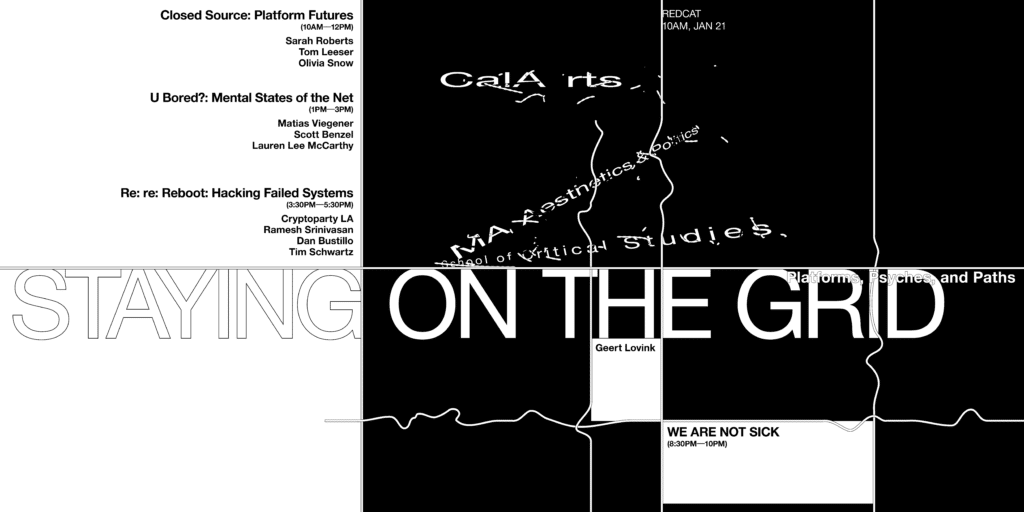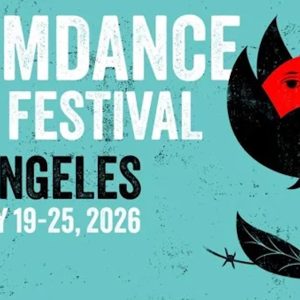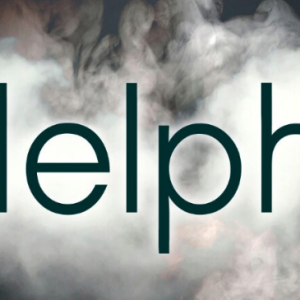“If Twitter is the canary in the coal mine, then the era of social media may soon be over. Or is it?” These and other questions about our digital futures are examined in Staying on the Grid: Platforms, Psyches, Paths, a daylong conference organized by the Aesthetics and Politics program and the School of Critical Studies on Saturday, Jan. 21, taking place both virtually and in-person at REDCAT in downtown Los Angeles.
Community groups, artists, and researchers convene over the course of 12 hours to ponder what it means to “stay on the grid,” as well as the mental states that arise from being on the web, the current state of online platforms, and possible alternatives. The event is divided into three panels:
Closed Source: Platform Futures | 10 am–12 pm
Closed Source: Platform Futures critiques mainstream platforms. Panelists include a community group dedicated to a safer intersectional internet: Sarah Roberts, the feminist researcher who broke the story of the exploitative labor of online content moderators working in former colonies; Tom Leeser, digital media artist, educator, curator, and writer behind the CalArts Center for Integrated Media; and Olivia Snow, a writer, dominatrix, and research fellow at UCLA’s Center for Critical Internet Inquiry (C2i2).
U Bored?: Mental States of the Net | 1-3 pm
U Bored?: Mental States of the Net considers psychic life on the web. Panelists include community-based practitioners examining the social impacts of digital culture: Matias Viegener, writer, artist, and critic who has been examining the connection between intimacy and the digital; Scott Benzel, a multimedia artist plumbing the depths of the internet and technology worlds; and Lauren Lee McCarthy, an artist examining social relationships in the midst of surveillance, automation, and algorithmic living.
Re:re:Reboot: Hacking Failed Systems | 3:30-5:30 pm
Re:re:Reboot: Hacking Failed Systems looks at alternatives to the current state of the internet. Panelists include Cryptoparty LA, an anonymous hub for sharing tools that protect the vulnerable; Ramesh Srinivasan, who researches how new technologies can support Indigenous, non-Western, and other global communities; and artists Dan Bustillo (Art MFA 14) and Tim Schwartz, who work on data privacy and information security as a response to the power dynamics of surveillance culture.
Related to Staying on the Grid is We Are Not Sick, a lecture-performance hosted by media theorist Geert Lovink that evening at 8:30 pm, followed by a dialogue moderated by artist Ben Grosser.



